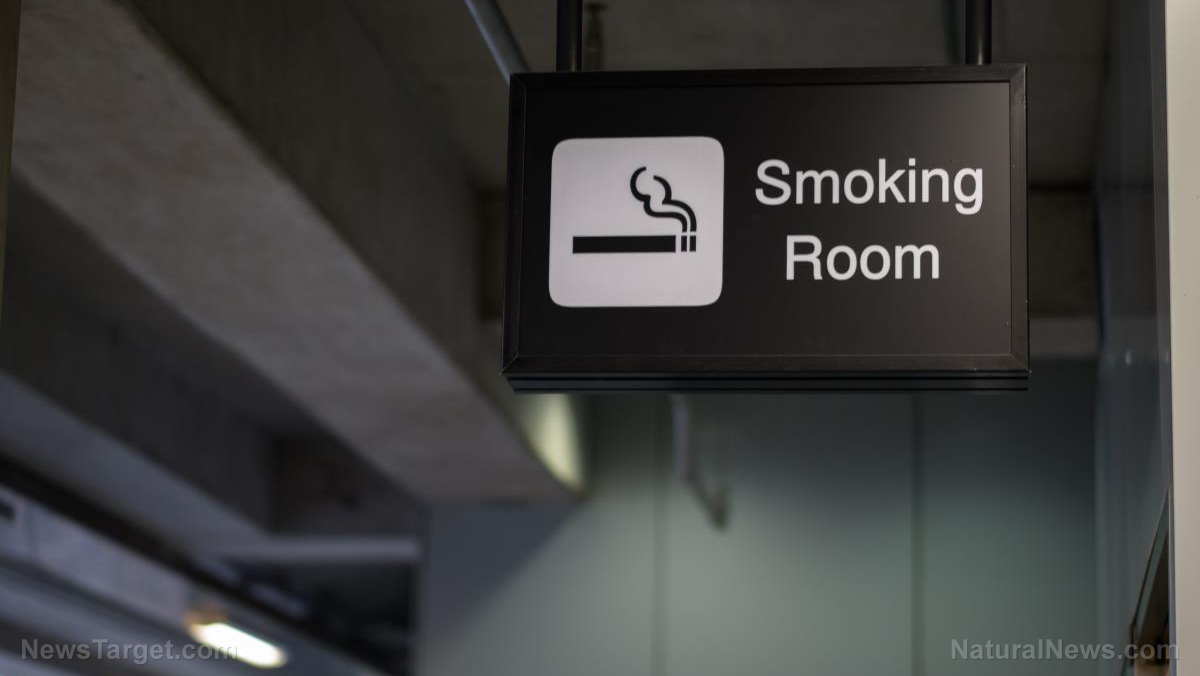Don’t even think about entering a smoke-filled room, for your heart’s sake
11/08/2019 / By Grace Olson

The health risks of smoking aren’t just limited to those who smoke: Those who don’t smoke are just as affected, and in certain cases, even worse. Recent research from Sungkyunkwan University (SKKU) in Seoul revealed the adverse effects of smoking, such as high blood pressure, can still impact a person long after a person has left – as long as the area is still smoky.
“Avoid exposure to secondhand smoke regardless of whether the smoker is still in the room,” said Byung Jin Kim, a professor at SKKU and the author of the study.
Where there’s a person smoking
While earlier studies have pointed out a link between secondhand smoking and hypertension, these were limited, given the size of the samples. It also used self-reported questionnaires, where many participants overreporting not smoking.
The SKKU study was the first to conduct a large-scale investigation regarding the link between secondhand smoking and hypertension. It included data from 131,739 non-smokers: A third of the participants were men and the average age was 35 years. Urine samples from each participant were examined for cotinine, a major compound found in nicotine.
The findings were worrying: Non-smokers exposed to secondhand smoke had an increased risk of developing hypertension, and it applied to both males and females. In particular, those exposed at home or at work were 13 percent more likely to get hypertension; those living with a smoker were at 15 percent; those who were exposed for over 10 years to secondhand smoke were 17 percent at risk.
The researchers also analyzed participants who already had hypertension. They found that these individuals were most likely exposed to secondhand smoking in their daily activities. The data revealed the following:

- Participants with hypertension were more likely exposed to passive smoking at home or work (27.9 percent) than those with normal blood pressure (22.6 percent).
- It is significantly more common in people exposed at home or work to have hypertension (7.2 percent) compared to people who did not (5.5 percent).
“The results suggest that it is necessary to keep completely away from secondhand smoke, not just reduce exposure, to protect against hypertension,” Kim added.
The study was presented at EuroHeartCare 2019, the annual congress of the Association of Cardiovascular Nursing and Allied Professions.
Health risks of secondhand smoking
The SKKU study is just one of many that assert the dangers that smoking has, especially to people around smokers. The smoke that comes from cigarettes and smokers contains thousands of chemicals – hundreds of which are toxic and 70 are carcinogens.
Any level of exposure to secondhand smoke is risky, according to the Centers for Disease Control and Prevention. Secondhand smoke has been linked to numerous conditions, some of which include:
Cardiovascular disease
Data from the Department of Health and Human Services reveals that nearly 34,000 premature deaths occur each year due to secondhand smoking. Additionally, it also increases the risk of stroke by 20 to 30 percent.
When a person breathes in secondhand smoke, it damages the lining of the blood vessels and causes stickier platelets. These changes interfere with the proper functions of the blood, heart, and vascular system, increasing the chances of a heart attack.
Lung cancer
Lung cancer is common among smokers, but non-smokers develop it as well. In the U.S., at least 7,300 non-smokers die from lung cancer each year due to secondhand smoke. This is because non-smokers inhale the same toxic substances that smokers do in secondhand smoke. (Related: Smoking causes genetic mutations of the lungs.)
It is crucial to note that these effects are not exclusive to adults but also affects children and infants. Children exposed to secondhand smoking are more likely to have more frequent and intense asthma attacks and develop respiratory and ear infections.
Smoking is a bad habit that does not discriminate against who it affects. Smokers and non-smokers alike stand to gain from its reduction and complete stop. Learn more about the adverse effects of smoking at StopSmoking.news.
Sources include:
Submit a correction >>
Tagged Under:
This article may contain statements that reflect the opinion of the author





















